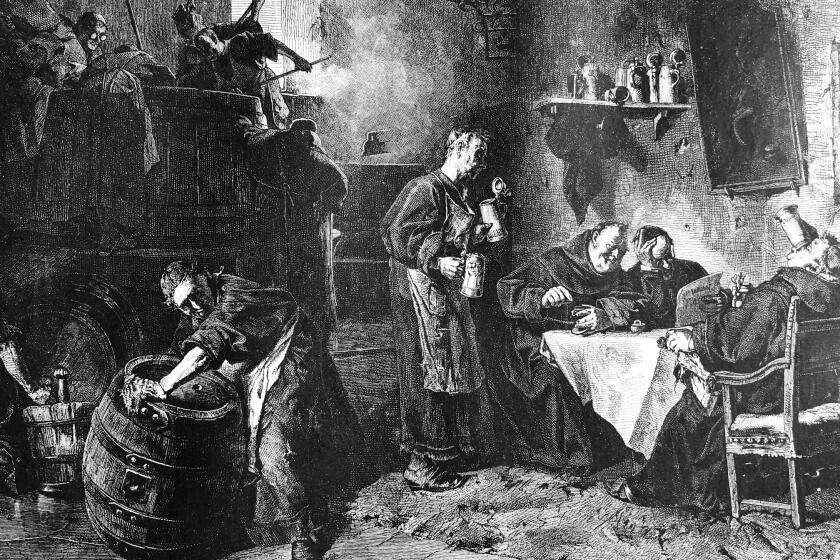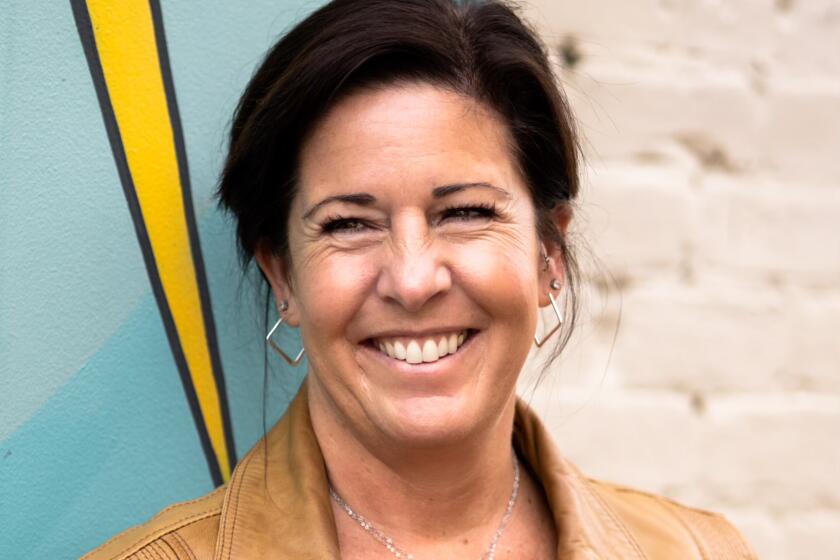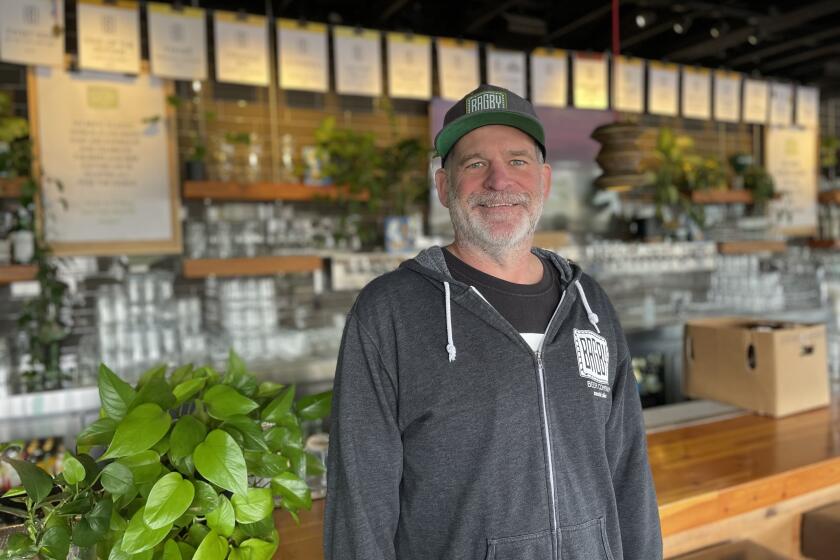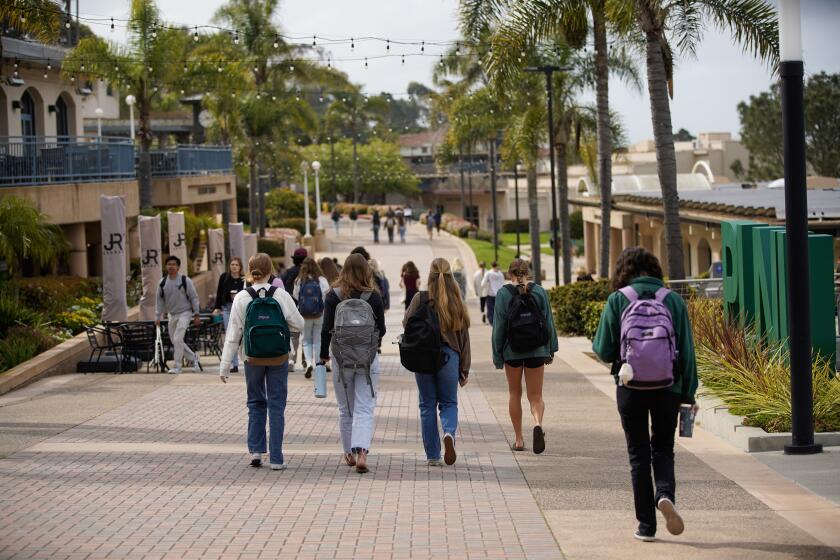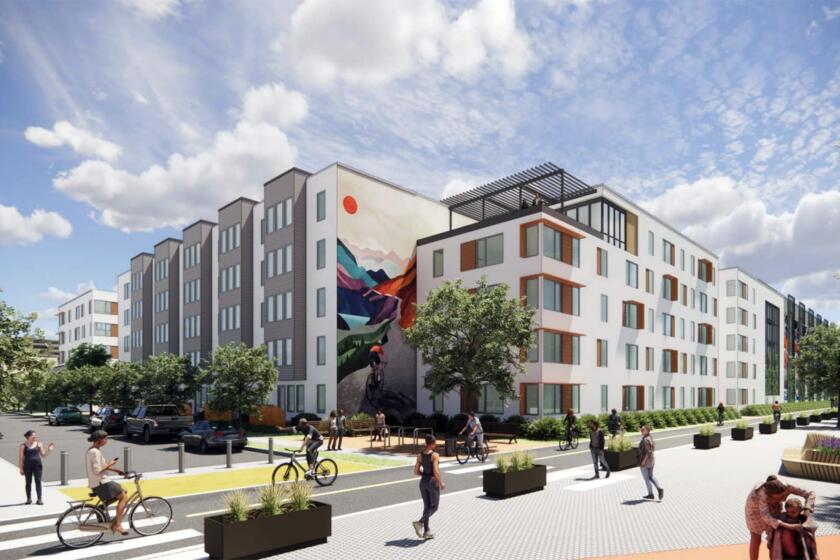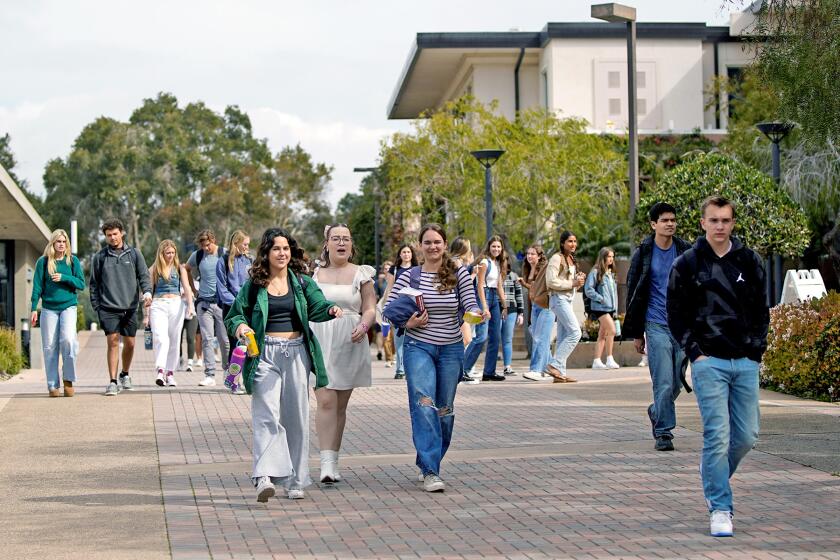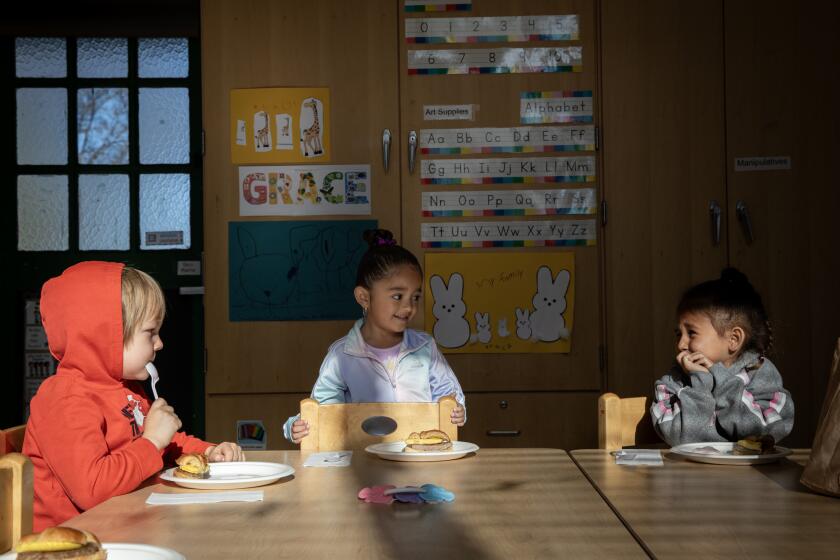SDSU frats suspend social activities
Move follows reports frat members yelled obscenities, mocked students protesting sexual assaults
Leaders of San Diego State University’s Greek community announced Tuesday that they are indefinitely suspending all socializing at campus fraternities. Instead of partying, members of fraternities and sororities will undergo sexual assault prevention training.
“It was time to really address these issues,” said J. Cole, president of the Associated Students.
Cole and the presidents of four Greek leadership groups took these steps after a weekend that raised further concerns about sexual assault and campus safety.
On Friday, a “Take Back the Night” march reportedly was interrupted by fraternity members yelling obscenities, waving sex toys and hurling eggs at the marchers. Saturday night, a woman reported she was sexually assaulted at a party near campus — the seventh such report this semester. Hours later, a 19-year-old woman reported that six men tried to pull her into their car near campus.
She escaped unharmed, but the accumulation of violent sexual incidents did not go unnoticed.
Cole and leaders of the InterFraternity Council, the Panhellenic Council, the United Sorority and Fraternity Council, and the National Pan-Hellenic Council consulted with university administrators and the campus Sexual Assault Task Force.
“We met to figure out the steps we need to take to address this issue,” Cole said.
In a joint statement, the groups pledged to educate members about sexual assault prevention and how to respond when witnessing dangerous behavior.
Elliot Hirshman, the university’s president, hailed the move.
“We must work as one community to create the substantive changes necessary to end sexual violence on our campus,” he said in a prepared statement. “The steps outlined today are the beginning of what must be a sustained effort to change attitudes, culture and actions and the university is committed to working with, and supporting, our Greek community as it pursues these essential efforts.”
While this campaign’s next steps will be charted after the Thanksgiving break, Cole said, campus leaders felt it was necessary to issue a firm statement this week.
“We take those allegations very seriously,” said Cole, a senior finance major and past president of the InterFraternity Council. “We’ve seen this spike in sexual assault reports.”
This rise, some maintain, may reflect changing attitudes toward sex crimes.
“It may be that there’s not more rape happening,” said Jeffrey Bucholtz, an SDSU lecturer and a Sexual Assault Task Force member. “It may be that people are feeling a little safer coming forward.”
Rapes, he noted, have traditionally been underreported as victims have feared they would be ridiculed, mocked or blamed for the crime. Overturning this “rape culture” is a goal of Frat MANers, a 10-year-old campus program that seeks to educate fraternity members to prevent violent or abusive sexual situations.
“I think they make an impact,” said Stephanie Waits, the health educator teaching this semester’s course. “I definitely know it impacts the students on an individual basis.”
Still, she noted, the course involves a maximum of 35 students per semester. SDSU’s student population is 30,000.
Cole hopes to enlist Frat MANers graduates to lead seminars, on campus and in fraternity houses, on this subject.
The prevalence of sexual assaults on campuses has become a nationwide concern.
A story in the current issue of Rolling Stone charges that a culture of sexual violence permeates the University of Virginia. The article includes a harrowing description of a gang rape witnessed by students who failed to intervene — or assist the ensuing police investigation.
University President Teresa Sullivan has asked Charlottesville police to investigate the reported gang rape at the Phi Kappa Psi house, and she has said the article contained details previously unknown to officials.
The university has suspended activities at all campus fraternal organizations in the wake of the story. Tommy Reid, president of the school’s Inter-Fraternity Council, conceded, “Sexual violence is a problem in fraternities and the Greek system. We don’t want to hide that … it’s upsetting to admit.”
A White House task force and the U.S. Department of Education for months have been examining how universities respond to sexual misconduct.
Clarification
An earlier version of the story mistakenly said SDSU police were investigating Friday night’s treatment of marchers. In fact, college administrators from the Division of Student Affairs are looking into it as a potential code of conduct and student organization policy violation.
Earlier this year, a state audit found SDSU and three other public universities in California failed to adequately train faculty and staff to respond to reports of sexual violence and sexual harassment and didn’t follow state law in distributing policies on how to handle such incidents.
SDSU said it already had various programs to address those concerns and was expanding upon them.
SDSU police are investigating the reported campus assaults while college administrators are looking into Friday night’s treatment of the roughly 35 “Take Back the Night” marchers as a potential code of conduct and student organization policy violation.
The march’s organizers, a group called Concerned Students of San Diego State University, urged the university on Monday to suspend all fraternities “until they can be made safe.”
The group also asked SDSU to expand its Sexual Assault Task Force to include a more diverse group of students, and charged that campus authorities are more interested in protecting the school’s reputation than its students.
“SDSU administration routinely expresses concern about sexual assaults, but the reality of campus life shows its efforts have thus far been woefully ineffective,” said a statement from Concerned Students. “We demand bold action from the administration to combat SDSU’s campus rape culture.”
Tuesday’s statement from the Greek community also condemned the marchers’ harassment. Such behavior, the statement said, is “unacceptable and does not reflect the values of the Greek community at SDSU.”
Campus spokeswoman Natalia Elko said she is unsure how many fraternities and sororities were covered by the agreement, because not every house is registered with the leadership groups.
But she said, “as far as I understand it, it is pretty inclusive.”
Get Essential San Diego, weekday mornings
Get top headlines from the Union-Tribune in your inbox weekday mornings, including top news, local, sports, business, entertainment and opinion.
You may occasionally receive promotional content from the San Diego Union-Tribune.





